Look up free New Mexico divorce records on anyone without tedious research and endless calls. These records are generated by the courts and can often be accessed without any fees.
Under the state’s Inspection of Public Records Act (IPRA) and the federal Freedom of Information Act (FOIA), the public has unrestricted access to these documents.
The ability to view and acquire divorce records is crucial because it allows citizens to carry out official processes such as name changes, permits re-marriage and makes it possible to determine someone’s marital status.
Divorce documents can be viewed through county channels in New Mexico, but the state Vital Statistics Offices do not furnish these documents. Thankfully, the public can retrieve these documents without knowing which public agency generated them; check out the guidance offered below for more insight.
Are Divorce Records Considered Public Records in New Mexico?
In the state of New Mexico, divorce records are part of information produced by a public body—in this case, the courts. Pursuant to the Inspection of Public Records Act, all documents in and produced by state and local governments are open to access, with a few exceptions.1
These exceptions include divorce records sealed by court order for several reasons such as protecting victims of violence or abuse, preserving the privacy of children or safeguarding records that may reveal trade secrets or compromise national security.
There is a difference between divorce records and decrees. In most states, divorce records are typically documents issued by the State’s Vital Records Office and serve as proof of termination of the matrimony.
However, the state’s Department of Health does not issue New Mexico dissolution records as expanded upon below.
Conversely, divorce decrees are documents signed by the judges and issued by the courts upon finalization of the dissolution. The parties of the records and the legal representative receive a copy. In New Mexico, dissolution decrees are in custody of the Clerk of the District Court and only eligible persons such as owners of the records, immediate family members and legal counsel can request them.
Patrons also have the option of reaching out to third-party vendors who will search government databases for divorce records. This is particularly useful when individuals are not certain as to where the records are and also don’t require official certified copies.
The U.S. Census Bureau maintains divorce rates at a national level and by state. New Mexico has a divorce rate of 6.3 per 1000 persons which is slightly lower compared to the U.S. average of 6.9.2 This rate is a general statistic, and does not distinguish same sex couples but all divorces.
How To Access New Mexico Divorce Records for Free
The New Mexico Department of Health does issue vital records such as birth certificates, but does not issue divorce certificates—for these, interested parties will need to get in touch with the Clerk of the District Court.3
Requestors additionally have the option of viewing New Mexico dissolution records using a Free Public Divorce Index Search Tool.4
This instrument provided by the Unified New Mexico Courts provides users a free public divorce records search for court documents from the Supreme Court, Court of Appeals, District Court and Magistrate Courts.
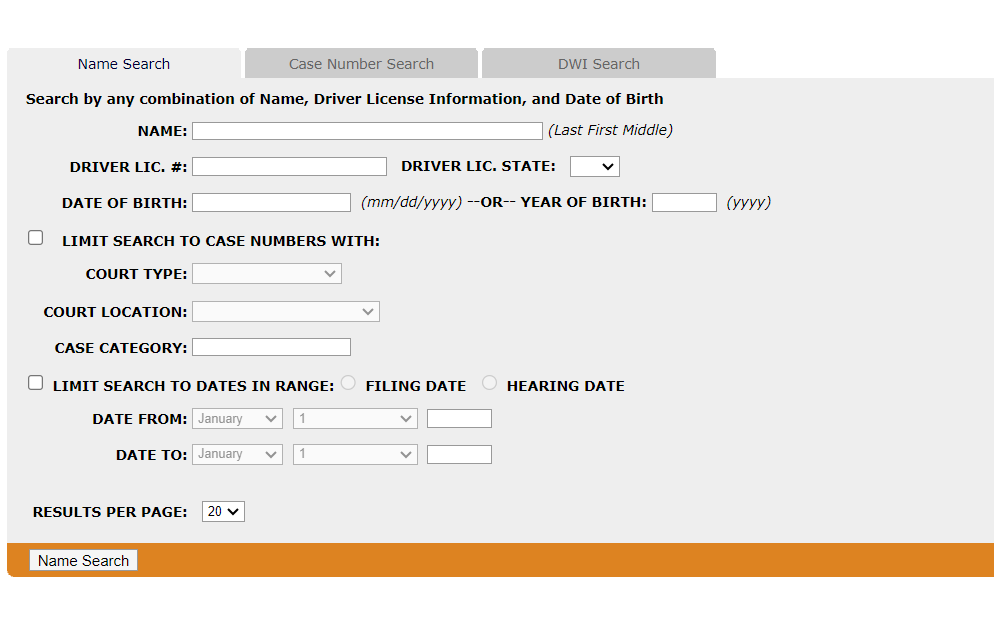
Select “District Court” when searching for divorce records and you may narrow the search to the county and city level. This tool accesses a database that furnishes records after 1997 digitized with the advent of statewide court automation. Patrons will need to contact the specific county that issued divorce records before 1997.
The process for searching for county records appears in the section below.
Additionally, interested parties can search for older divorce records in the New Mexico State Records and Archives and other public channels—this is delved into the sections that follow.
Requesting Divorce Records in New Mexico Through Local Counties & Cities
If the patron is aware of the county that issued the decree, then locating the records through the Clerk of the District Court would be the best option.
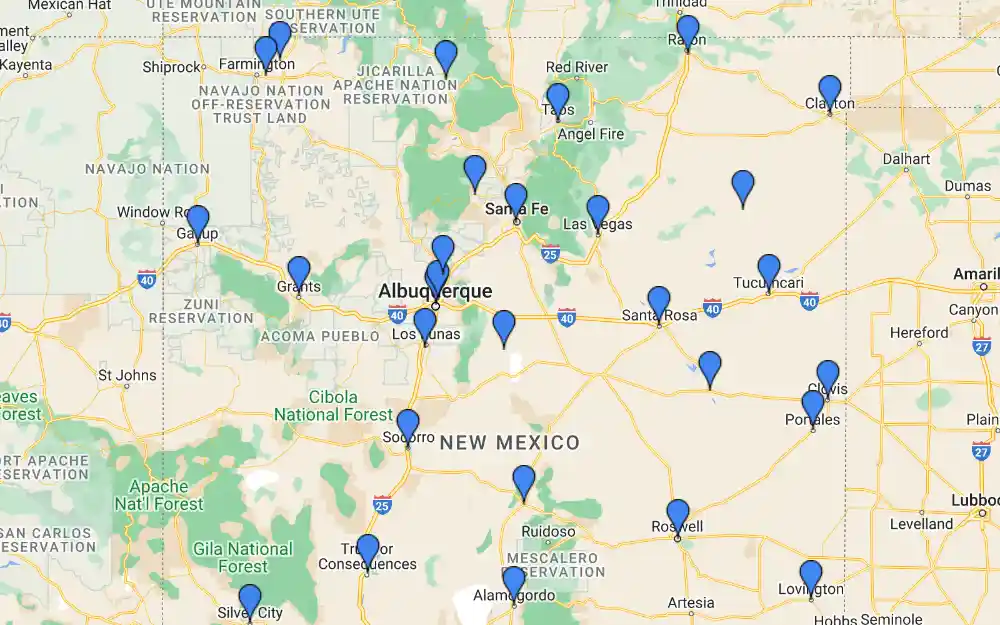
Some counties may provide online tools to search for these records which would generally be free; however, if someone needs to order a copy of a certified record for purposes such as adoption or legal matters, they must be eligible to make the request.
As was mentioned in the previous section, the New Mexico Department of Health does not have any sort of divorce records in its database. Obtaining dissolution certificates from the counties therefore becomes a viable option. Additionally, county offices serve a smaller population which makes ordering vital records from them a quicker and easier process.
To showcase a search for divorce records, the top most populated counties in the state will be used. They are Bernalillo, Doña Ana and Santa Fe counties.
Acquire Divorce Records in Bernalillo County: Interested parties may view and acquire dissolution records from the Bernalillo County Second Judicial District Court – Domestic Relations Division Office. The easiest and quickest way to view these records would be online using the New Mexico Case Lookup Tool at no cost for data created before 1997.
Walk-in requests will have applicable fees to obtain divorce records. Citizens may request non-certified or certified copies at the Domestic Relations Division Office:
Bernalillo County Second Judicial District Court
Domestic Relations Division Office
Room 240, 2nd Floor
400 Lomas Boulevard North West
Albuquerque, New Mexico 87102
Interested parties can mail in a request to obtain a certified copy of a dissolution decree. They will need to include full names of both parties, case number and year filed if possible and approximate dates of filing.
The request should include a self-addressed envelope and payment of $5.00 in the form of money order or cashier’s check paid out to the “Clerk of the Court.” Mail the application to the address above.
Call 505.841.7421 for any inquiries or concerns.
Request Dissolution Records in Doña Ana County: Citizens who require copies of dissolution decrees will need to contact the Office of the Court Clerk of the Third Judicial District Court.
They may do so by visiting the courthouse where the staff will assist with searching, copying, duplication and providing certification services. Requesters can view the charges from this fee schedule.
The address for the Third Judicial District is below. Call 575.523.8200 for any questions.
Third Judicial District
Office of the Court Clerk
201 West Picacho Avenue
Las Cruces, New Mexico 88005
They may also request these records by mail, which include divorces recorded before 1986. Complete the dissolution certificate request form (fees are outlined on the form) which can be dropped off or mailed in.
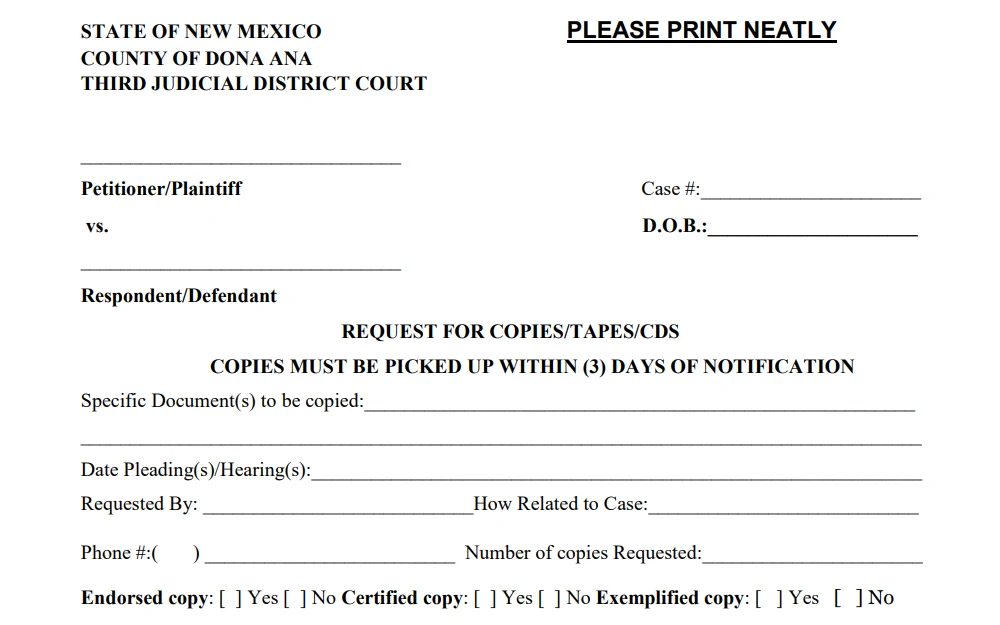
The Court Clerk processes certificates in three business days and will contact the applicant when they are ready for pick up. Applicants must collect the documents within 3 days—this is strictly enforced.
If the requestor provides a self addressed envelope, the Clerk’s Office will mail the documents back. Records created from 1997 may be conveniently viewed online using the New Mexico Divorce Lookup Search Tool.
Order Divorce Records from Santa Fe: Individuals who need to view and order dissolution records must contact the First District Court Clerk’s Office as they are not held by the County Clerk.
Records can be obtained by visiting the First Judicial District Court Monday to Friday 8 AM to 4PM. Their main telephone number is 505.455.8250. Applicable fees will be assessed.
Santa Fe County Courthouse
225 Montezuma Avenue
Santa Fe, New Mexico 87501
Alternatively, interested parties may email [email protected] to make a request.
Patrons may also view Santa Fe County dissolution records online for records after 1997.
A search through city public offices can sometimes yield some information on divorce records. However, since all divorce records are generated and held by the Clerks of the District Courts in New Mexico, patrons will need to contact the respective court that has jurisdiction of the city.
The three most populated cities in New Mexico and serve as examples on how to find divorce records. These are Albuquerque, Las Cruces and Rio Rancho.
Albuquerque is served by the Bernalillo County Second Judicial District Court. The City of Las Cruces directs interested persons to the Office of the Court Clerk of the Third Judicial District Court.8, 9 Rio Rancho is under the jurisdiction of the Sandoval County Court Clerk of the Thirteenth Judicial District Court.
Residents of cities in the state may also use the New Mexico Dissolution Records Search Tool. The tool allows users to select the city in which the district court is located.
Locating Family Divorce Records via the New Mexico State Archives for Free
Older divorce records can be found via several public state and county agencies including the New Mexico State Records Center & Archives and the Judicial District Courts.
Divorce documents are a vital component when performing genealogy research and determining ancestral lineage. They help individuals pinpoint their ancestors, get a glimpse into their lives or determine any assets they were in possession of.
Interested persons who are searching for decrees of divorce that were created before 1912 will need to access the judicial records from the New Mexico State Records Center & Archives.10, 11 This state agency makes available an online New Mexico Archived Divorce Records Search tool which is free to use.
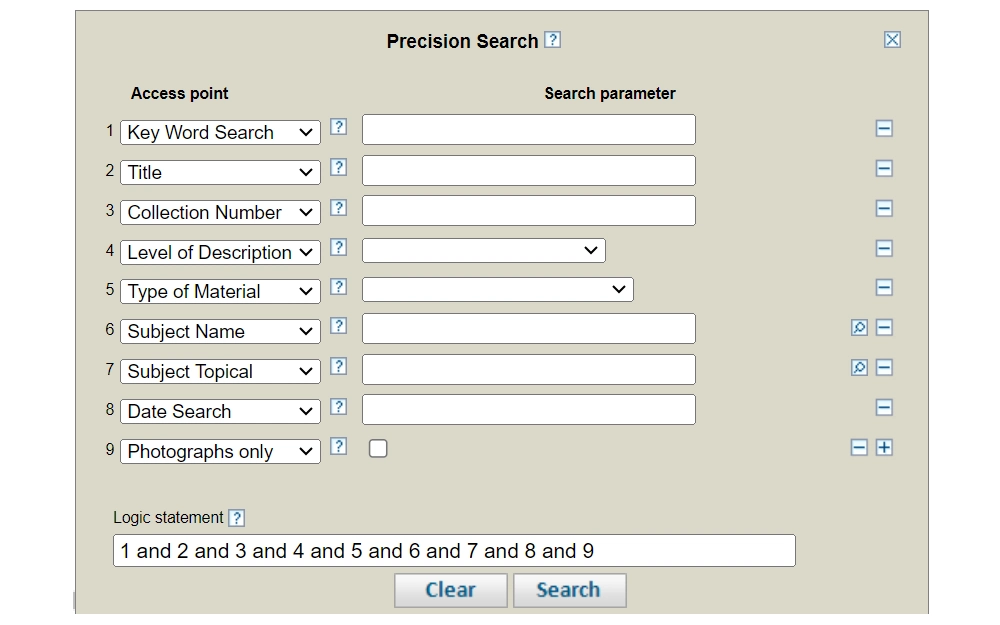
As the catalog is always growing, searchers may not find what they are looking for; call 505.476.7948 or email [email protected] for any questions. Alternatively, visit the New Mexico State Records Center & Archives Monday to Friday 10 AM to 4:45 PM at the address below:
New Mexico State Records Center & Archives
1205 Camino Carlos Rey
Santa Fe, NM 87507
In New Mexico, divorce records created after 1912 may be found at the Clerk of the District Court in the county where the decree was issued. Examples of three counties were cited earlier. It is also possible to view divorce records that were created after 1997 online using the Divorce Record Search Tool.
Newspapers may be a source of divorce information in the form of gazette notices. There are several online resources that citizens can scour for divorce records for free; these appear below. The majority of these newspapers are dated pre-1900’s.
- Library of Congress New Mexico Digitized Newspapers—Users can enter a keyword such as divorce record or the name of the party they are looking for to find a record.
- University of New Mexico Digital Repository—Patrons can utilize the simpler or advanced search feature to find divorce records. They may also find records using a date range.
- New Mexico State Library’s Newspaper Collection—There are several links that give users access to records in microfilm and online. Links also point interested parties to the librarian’s contact for further inquiries.
- Public Library (Albuquerque and Bernalillo County)— The Public Library provides helpful links to several historical newspapers which users can utilize to find archived divorce records. There is also a contact to direct questions and inquiries.
Lastly, citizens may get in touch with genealogy libraries in New Mexico that may have additional resources to locate divorce records.
How To Determine if Someone Had a Dissolution of Marriage in NM
Citizens who need to make a determination as to whether an individual has had a dissolution of marriage in New Mexico will need to search through public divorce records located in the District Courts.
They can do so conveniently online using the New Mexico Unified Courts system that provides access to records created in the District Courts since 1997. This Dissolution of Marriage Records Search Tool is provided at no cost to the public.
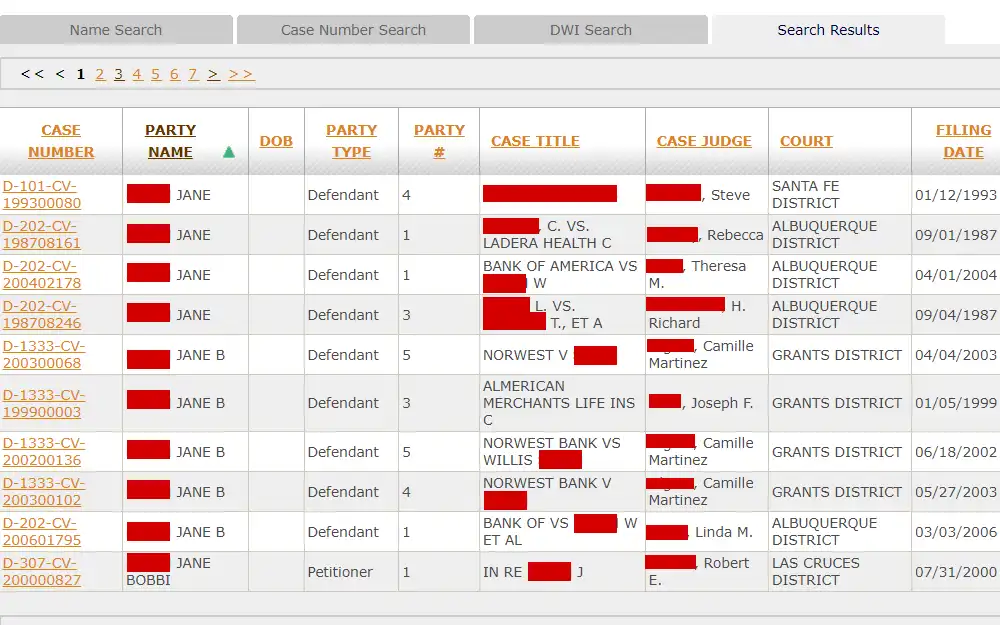
However, to acquire statewide divorce records created before this date but after 1912, interested parties will need to get in touch with the appropriate Clerk of the District Court. They may do so by either visiting the courts which have computer terminals to view court records, emailing or mailing in their request.
Individuals who get in touch with County District Courts will not, however, be able to obtain certified copies of dissolution decrees unless they are eligible persons outlined earlier. Earlier dissolution records that are pre-1900’s can be retrieved from the Archives and other public channels.
Methods outlined here are not a viable way to find common law divorce records in New Mexico. This is because common law marriages are not legal or recognized in New Mexico—conversely, the state will not grant dissolutions to couples in common law marriages as does occur in states that deem these unions as lawful.13
How To File for Divorce & Respond to Petitions (Understanding the New Mexico Divorce Process)
To file for divorce, couples need to meet the state’s residency requirements which are to reside in the state six months prior before filing, have a permanent home in the state and be physically present pursuant to N.M. Stat. § 40-4-5— all dissolutions are filed at a New Mexico District Court.14, 15
Other than divorce, legal separations also known as mensa et thoro are legal in New Mexico. It is often common for couples who are not living together, but still legally married to opt for this as a way to ease into a permanent divorce or they may choose to reconcile.
There are two forms of divorces in New Mexico; contested and uncontested. Uncontested divorces are the simplest and occur when the spouses agree on matters involving division of property, child custody and alimony. Contested divorces take place when the couple disagree on the aforementioned issues.
The state permits both no-fault divorce and fault-based dissolutions. No fault dissolution is a scenario where the court does not need either party to prove the other’s actions were the cause for the divorce. These reach a resolution much quicker.
At fault annulments, on the other hand, require the spouse to present evidence to the judge that the other party committed an act such as adultery or cruelty to meet a ground for divorce.
It is highly advisable and recommended to enlist the services of legal counsel when filing for divorce, particularly those that are contested due to the knowledge needed to navigate the New Mexico legal requirements for dissolution. This dissolution of marriage guide can help couples who want to file for a divorce without a lawyer.
Uncontested Divorce: To initiate this form of divorce, the couple will jointly file these New Mexico Divorce Forms which include a domestic relations information sheet, marital settlement agreement and a child support worksheet if children are present.
Once the forms have been completed (with two copies), proceed to file them at New Mexico District Court whether either spouse resided.
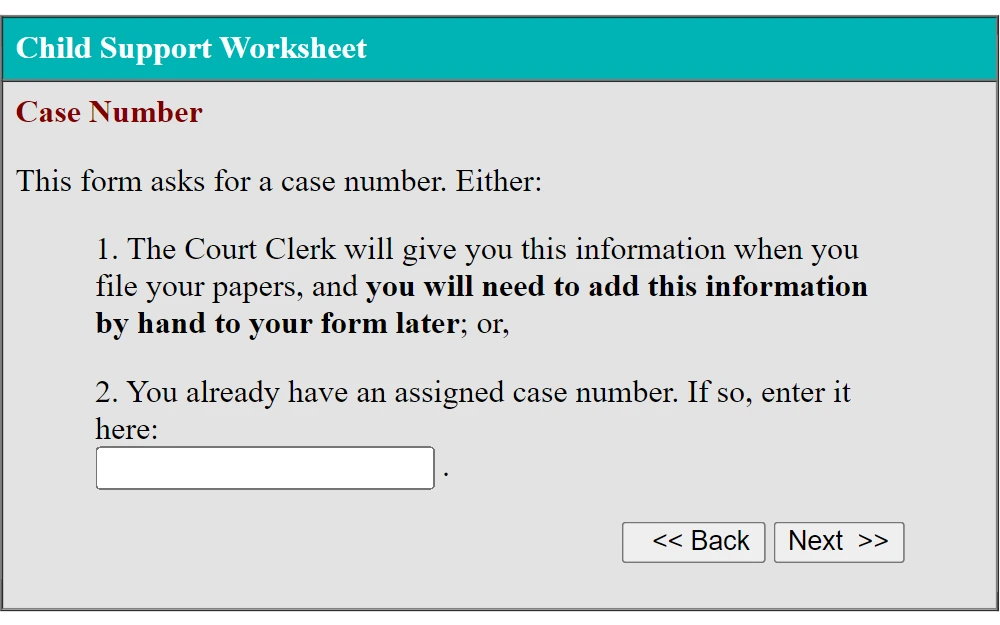
The filing fee for divorce in New Mexico as of 2022 is $137.00 pursuant to N.M. Stat. §§ 34-6-40, 40-12-6. If unable to pay this fee, the couple may file for a request a free processing of the divorce. The judge will review the documents and sign the decree—this will become final after 30 days, but this may be waived.
Contested Divorce: A spouse who wishes to file for a contested divorce will complete the New Mexico Divorce Forms. The fees are the same as outlined above and may also be waived. Upon filing the forms with the New Mexico District Court, the plaintiff (spouse that filed) will need to serve the divorce papers to the defendant.
This can be through hiring a law enforcement official, mailing the documents via certified mail, hiring a private server or enlisting a person who is not party to the divorce to deliver the documents. If the couple filed the contested divorce jointly, this is not necessary.
If the plaintiff is having challenges serving the defendant, they may request the court to serve them using an alternate method such as placing a notice in the newspaper. The defendant will have 30 days to respond to the papers through the courts and can either agree or contest the contents of the documents.
This initiates the process of negotiation. The plaintiff or petitioner is responsible for completing a return form proving that they served the defendant.
The public can access New Mexico divorce records with no barriers; however, it’s important to know where and how to find them—this resource makes it seamless to navigate public channels in the state to locate the desired documents.
For other record types, you can utilize the New Mexico marriage search instructions or review the process of finding all free NM public records (warrants, arrests, property ownership, background checks, court cases, and more).
References
1New Mexico Attorney General. (n.d.). Inspection of Public Records Act. Retrieved November 10, 2023, from <https://www.nmag.gov/get-help/inspection-of-public-records-act/>
2United States Census Bureau. (2023, May 31). U.S. Marriage and Divorce Rates by State: 2011 & 2021. Retrieved November 10, 2023, from <https://www.census.gov/library/visualizations/interactive/marriage-divorce-rates-by-state-2011-2021.html>
3New Mexico Department of Health. (n.d.). Vital Records. NMDOH. Retrieved November 10, 2023, from <https://www.nmhealth.org/about/erd/bvrhs/vrp/>
4New Mexico Courts. (n.d.). New Mexico State Judiciary Case Lookup. Retrieved November 10, 2023, from <https://caselookup.nmcourts.gov/caselookup>
5New Mexico Courts. (n.d.). Welcome to Case Lookup. Retrieved November 10, 2023, from <https://caselookup.nmcourts.gov/caselookup/app>
6New Mexico Courts. (n.d.). Find A Court. Retrieved November 10, 2023, from <http://nmcourts.gov/find-a-court/>
7New Mexico Third Judicial District Court. (2023, August 18). Copy Request Form Jan 2015. Third Judicial District Court. Retrieved November 10, 2023, from <https://thirddistrictcourt.nmcourts.gov/wp-content/uploads/sites/18/2023/08/Copy-Request.pdf>
8City of Las Cruces. (n.d.). FAQs • Las Cruces, NM • CivicEngage. Retrieved November 10, 2023, from <https://www.lascruces.gov/Faq.aspx?QID=258>
9New Mexico Courts. (n.d.). Requesting Services – Copies/CDs | Third District Court. Third Judicial District Court. Retrieved November 10, 2023, from <https://thirddistrictcourt.nmcourts.gov/home/office-of-the-court-clerk/requesting-services-copies-cds/>
10Albuquerque Public Library. (n.d.). NM Vital Records – Genealogy Center – LibGuides at the Public Library Albuquerque Bernalillo County. the Public Library. Retrieved November 10, 2023, from <https://abqlibrary.org/genealogy/vitalrecords>
11New Mexico Archives Online. (n.d.). Judicial records. Retrieved November 10, 2023, from <https://nmarchives.unm.edu/subjects/6669>
12New Mexico State Archives. (n.d.). Precision Search. HERITAGE. Retrieved November 10, 2023, from <https://heritage.srca.nm.gov/webcat/request/DoMenuRequest?SystemName=New+Mexico+State+Archives&UserName=nma+public&Password=&UniqueID=0&TemplateProcessID=6000_12203_12203&bCachable=1&MenuName=New+Mexico+State+Archives&ControlPer=20&ControlLoc=T>
13Cornell Law School. (n.d.). marriage laws | LII / Legal Information Institute. LII. Retrieved November 10, 2023, from <https://www.law.cornell.edu/wex/table_marriage>
14New Mexico Courts. (n.d.). Self Help – Divorce Forms. Retrieved November 10, 2023, from <https://www.nmcourts.gov/self-help/divorce/>
15New Mexico Courts. (n.d.). 40-4-5. Dissolution of marriage; jurisdiction; domicile. The district court has jurisdiction to decree a dissolution of marriage. Retrieved November 10, 2023, from <http://realfile.nmcourts.sks.com/40-4-5.pdf>
16New Mexico Courts. (n.d.). Child Support Worksheets. Retrieved November 10, 2023, from <https://appjidcsworksheet-nmcourts.sks.com/csworksheet/>
